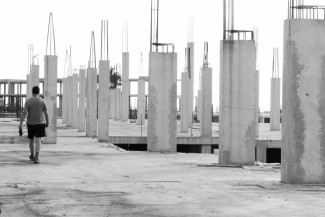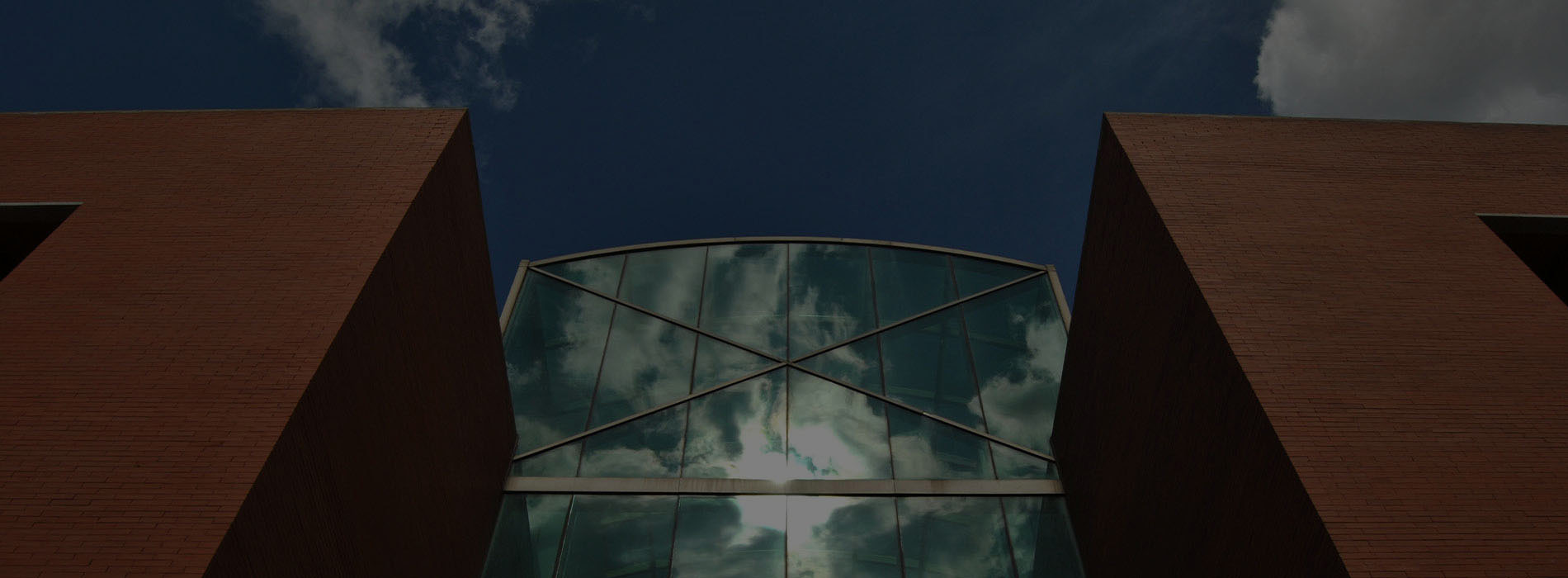International and interdisciplinary conference "Writing with ruins: Embodied encounters and creative narratives"
Venue: Intermediæ / Centre for Contemporary Creation Matadero-Madrid, Spain
Organizers: Pablo Arboleda and Isabel Gutiérrez Sánchez, Department of Anthropology – Spanish National Research Council (ILLA-CSIC)
Institutional collaborator / venue: Intermediæ / Centre for Contemporary Creation Matadero-Madrid, Spain
Keynote speakers:
- Thora Petursdottir, Department of Archaeology, Conservation and History – University of Oslo, Norway
- Justin Armstrong, Writing Program / Department of Anthropology – Wellesley College, USA
- Hayden Lorimer, School of Geosciences – University of Edinburgh, UK.
Conference description
Modern ruins are the material legacies resulting from obsolete paradigms and a series of socioeconomic, political and environmental changes that have taken place in contemporary times. In the popular imagination, a ruin is what remains whenever a society reinvents itself, and, since the tangible appearance of architectural abandonment tends to disturb our deeply ingrained aesthetic standards, ruins are commonly perceived as undesirable, uncomfortable spaces—even as sources of embarrassment subjected to taste (Orange 2008). In this sense, over the past decade, the concept of ‘ruin’ has increasingly positioned itself as a figure of social critique, capable of challenging the omnipresent order of a capitalist world and its dominant narratives of transformative progress (DeSilvey and Edensor 2013); however, acknowledging the ruin as a growing reality, it can also be argued that its visibility has increased and its meaning has evolved, giving rise to new forms of valuation and appreciation. Thus, modern ruins are increasingly celebrated for their distinctively immersive atmospheres and, more significantly, they are becoming a prime epistemic space from which to collectively contemplate how to inhabit the collapse of many of our infrastructures in order to rebuild alliances, reintegrate communities, and rethink alternative futures (Göbel 2021). Accordingly, this conference seeks to embrace the ambivalent nature of ruins—always fluctuating between tragedy and fascination, frustration and hope, memory and futurity—until we come to understand them as a broad cultural asset intricately tied to the most pressing contemporary issues and responses, such as deindustrialization and crises, urban struggles, participatory and sustainable space reclamation, the weaving of care networks, gender diversity and migration, climate crisis and natural disasters, rural depopulation, new interspecies relations, armed conflicts, historical memory, and emerging practices of collective grief and imagination.
Miércoles 21 de mayo de 2025
10.30h - 11.30 h.
“Digging Shadows, or How to Make the Dark Side of Soviet Modernity Perceptible”. Francisco Martínez / University of Murcia, Spain.
“‘Risen from Ruins’: Optimism, Scepticism and the Everyday Lives of Pos-Socialist Pasts and Post-Coal Futures in `Transition Town´, East Germany”. Amy Walker / Martin Luther University Halle-Wittenberg, Germany, Jürgen Viet Anh Höpfel / Martin Luther University Halle-Wittenberg, Germany.
12.00 – 13.30 h.
“Participatory Tracing: Choreographing Narratives Through Kenya´s Development Ruins”. Keren Kuenberg / University Institute of Lisbon, Portugal.
“Bhoot Bangla. Building Stories: Retelling ruined houses in a Bengali Industrial Town”. Edward Hollis / University of Edinburgh, UK.
“`Where the Germans Live´: A Haunting in Swakopmund and Windhoek, Namibia”. Jack Boulton / Université Libre de Bruxelles, Belgium.
15.00 – 16.30 h.
“The sensorial exploration about military urban ruins. The case of Campamento barracks in Madrid (Spain)”. Federico Camerín / University of Valladolid, Spain
“Archaeology of Festivity: Sonic Explorations of Modern Festive Ruins”. Matilde Meireles / Independent artist-researcher, UK. Iñigo Sánchez-Fuarros / Spanish National Research Council, Spain. Fátima Rodríguez-Porto / Spanish National Research Council, Spain
“Quiet Theory”. Megan Jeanne Gette / University of Cincinnati, USA
17.00 – 18.00 h. - Keynote -
“Ruination Grammars: Writing the absent into presence”. Justin Armstrong / Wellesley College, USA
Ponencias en idioma inglés con servicio de traducción simultánea al español.
Jueves 22 de mayo de 2025
10.30 – 11.30 h.
“A Journey through the Ruins of World War II in Artic Norway”. Martin Padget / Western Norway University of Applied Sciences, Norway
“‘Once you come to the Outer Islands, nothing is straightforward”: Re-turning and re-surfacing in the brecciated landscape of the North Ronaldsay Sheep Dyke`”. Margareta Pinter / University of Copenhagen, Denmark
12.00 – 13.30 h.
“Returning to a Home that isn´t There: An Auto-archaeology of My Childhood Summerhouse”. Anatolijs Venovcevs / Svalbard Museum, Norway
“Living within ruins: Demolition stories”. Isabel Concheiro / School of Engineering and Architecture of Fribourg, Switzerland
“Writing with Ruins: Loss, Memory and the Legacy of Dolwilym”. Anna Kiernan / University of Exeter, UK
15.00 – 16.30 h.
“Photographic Fragments of a Ruin”. Aude Le Gallou / University of Geneva, Switzerland
“A New Urban Future”. Clara McSweeney / Independent artist-researcher, Ireland
“Translating ruins through polyphonic autoethnography: The case of ‘Las (In)visibles de Pizarrales`”. Elizabeth Manjarrés Ramos / University of Salamanca, Spain, Margarita Savchenkova / University of Salamanca, Spain, Lourdes Moro Gutiérrez / University of Salamanca, Spain
17.00 – 18.00 h. - Keynote -
“From the Lookout: Views of “the ruin” in a nature-culture landscape”. Thora Petursdottir / University of Oslo, Norway
Ponencias en idioma inglés con servicio de traducción simultánea al español.
Viernes 23 de mayo de 2025
10.30 – 11.30 h.
“Facadism and the Postindustrial Park”. Brian Rosa / Autonomous University of Barcelona, Spain
“Culture in ruins: Theatres’ remains and afterlives in Barcelona and Havana”. Laura Menéndez / Stanford University, USA
12.00 – 13.30 h.
“Photography in Ruins”. Kerstin Barndt / University of Michigan, USA
“On Thingness and Neglect (Vivid Structures Will Enter Our Dreams)”. Lydia Unsworth / Manchester Metropolitan University, UK / University of Salford, UK
“Crude Hints: Towards a history of Chapex, Chaleroi Bie Plevoets / Hasselt University, Belgium”. Aimi Hayashi / Hasselt University, Belgium
15.00 – 16.30 h.
“La Gran Maqueta de Chile en Miniatura [The Big scale model of Miniature Chile]": Miniatures and rubble of an ideal nation”. Emiliana Cereceda / University College London, UK
“Writing with Dust”. Paula Leu / Complutense University of Madrid, Spain
“Inhabiting in the ruins of urban planning. Encounters with migrants living in derelict spaces”. Anne Claire Vallet / School of Advanced Studies in Social Science, France
17.00 – 18.00 h - Keynote -
“Fortifying the ruin: the nightwatchman, the trespassers, the artists, the church, and their antagonism”. Hayden Lorimer / University of Edinburgh, UK
Ponencias en idioma inglés con servicio de traducción simultánea al español.




